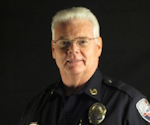During this Covid-19 crisis, I have been closely watching press conferences of elected officials and public leaders daily. To be honest, they are epic failures in the art of the handling a press conference. An apprentice public information officer (PIO) could run laps around them. In all of my years of dealing with the media, you should treat every press conference or media moment as the most important one of your career. Never, ever give a less than stellar performance because this was a lower ranked news crew or small town paper—they all matter. The camera does not blink, nor does it forget—there will be (video)tapes of wrath to haunt your media faux pas. Just because you are a governor, mayor or doctor does not mean you should get a pass on your failures. Public confidence is garnered not only by what you say but also how you say it and portray it. Let me review some of my observations.
I cannot understand why an elected official would speak in a condescending tone. You have many letters behind your name and resumes that may impress your parents, but not the man in the street. Speak so everyone can understand you, never exclude anyone. I was once told that the listener with no education should understand just as well as a professor did. The moment you exclude, you will lose more supporters than just that one person. Speak with clarity.
There have been press conferences that the leader speaking is actually smiling and smirking as they relay bad information, this is uncalled for! When you are relating information about the human experience, there should be no smiling. One seasoned PIO used to put a pebble in his shoe to press down upon it during the conference. The stone’s discomfort reminded him, no smiling. Personally, I would always take my thumbnail and drive it into my index finger to remind me, there is human pain here—no smiling. Remember that you are speaking to the people who placed you in your office, they empowered you. So do not talk to them as if they are a fretful child.
Your verbiage makes a difference. No, I am not speaking about using jargon or scientific terms without explanation. Once a young fire chief was giving a live news interview from a fire scene. The backdrop was a charred residence where the firefighters were in the overhaul stage. Not the best backdrop but his comment on live television was “this was a good fire”. What, when is there a good residential fire? What he was attempting to say was that there were no deaths, no injuries and they had made a quick stop to prevent further damage to what was left and adjacent properties. There was an immediate outcry due to his unintended but reckless statement. Stop and think before you speak. If you have a repour with the reporter, ask for pre-interview questions so that you may be able to couch them best for all concerns.
Check your backdrop prior to arrival, if you have a press backboard with the flags, you are solid. On the scene backdrops can be tricky and dynamic. Stating all is well and under control with fires still raging or personnel scurrying about does not convey the same message. When you can control your backdrop, do so.
Look in a mirror before you step out on camera. Your appearance matters if you are going to be professional. Recently, I have observed either chewing gum or lozenges in the speaker’s mouth—not acceptable. This is the same with toothpicks, tobacco products-not on camera! The amount of frumpiness of some officials has baffled me. If you are trying to portray how weary you are or how hard you have been laboring, this does not cut it. Check your appearance. You can’t tell me that is not a mirror handy for that final face check. All of the elected officials have ‘handlers’, staffers or assistants, they should be looking out for you. Have a small pocket mirror handy prior to any interview, check yourself!
Stage the dais. When you have staffers, who will also be speaking during the conference, align them when possible. Know their names, title and roles of which they will speaking. When or if, they are called to the podium give a brief introduction, especially if they are wearing masks. They step in and you step back, you are not leaning over their shoulder. They come into together and leave together, in other words do not leave anyone behind to be grilled by the media. When it is over, it is over and all leave. Have all cut off their cells during the conference, seen to many fiddling with their cells on camera. Not unless this is dynamic breaking news, it exhibits disrespect to the importance of the moment.
There is nothing more powerful than the media. They tell us where to shop, what to eat, and basically have the most influence over our lives. Should you fall out of favor with them, they can destroy your public image with the tapes of wrath. Your positive image and how you portray the story can garner public confidence. Be professional for the camera does not blink.

William L. Harvey | Chief
William L. "Bill" Harvey is a U.S. Army Military Police Corps veteran. He has a BA in criminology from St. Leo University and is a graduate of the Southern Police Institute of the University of Louisville (103rd AOC). Harvey served for over 23 years with the Savannah (GA) Police Department in field operations, investigations and completed his career as the director of training. Served as the chief of police of the Lebanon City Police Dept (PA) for over seven years and then ten years as Chief of Police for the Ephrata Police Dept (PA). In retirement he continues to publish for professional periodicals and train.



